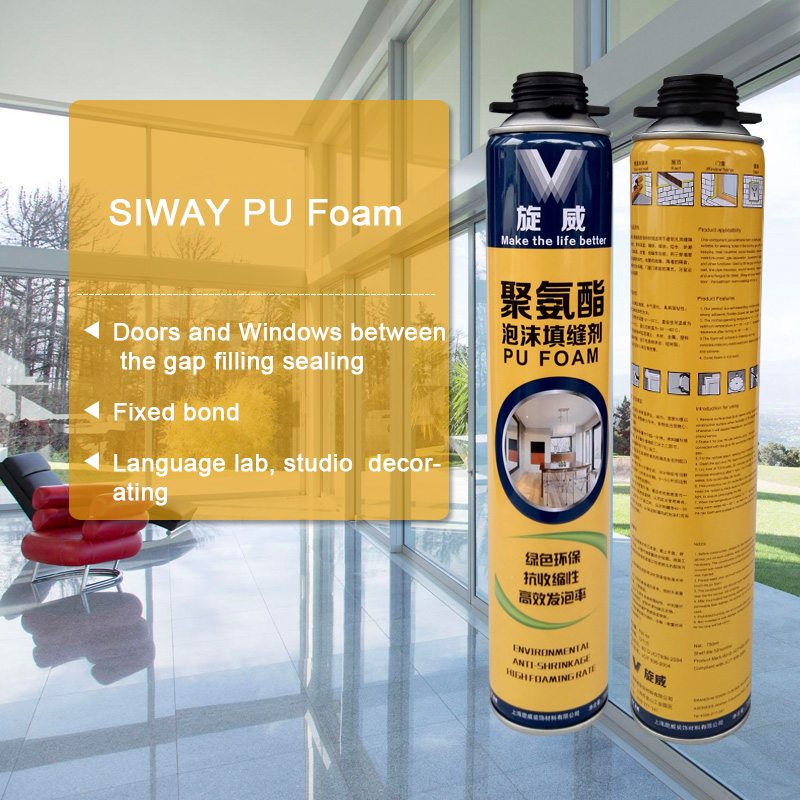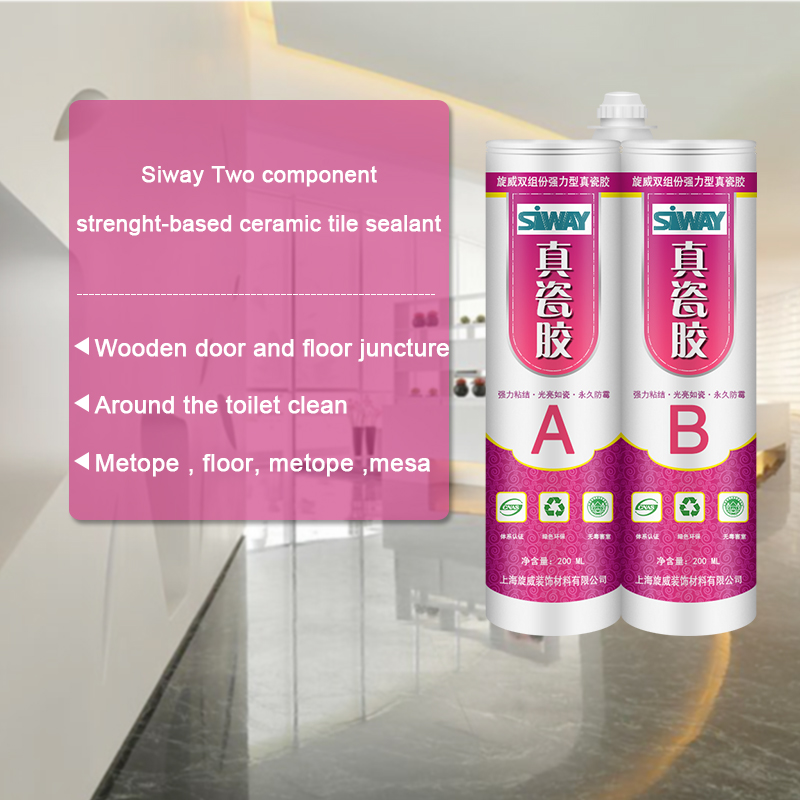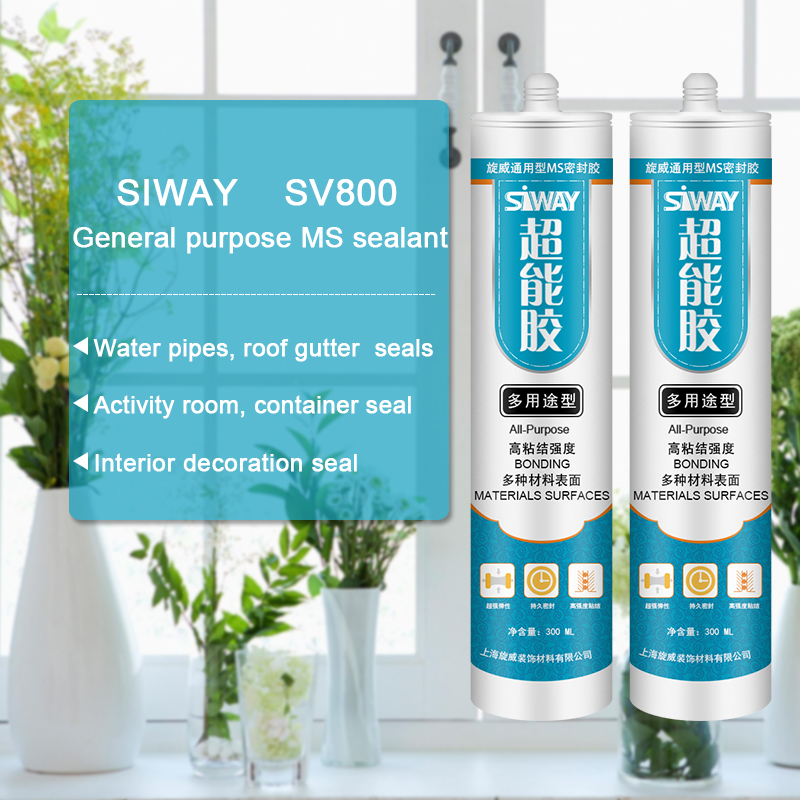OEM Customized wholesale SV-999 Structural Glazing Silicone Sealant for Malta Manufacturers
Short Description:
Description SV – 999 silicone structural sealant is a one-component, neutral curing, designed for glass curtain wall, aluminum curtain wall, glass daylighting roof and metal structural engineering structural assembly silicone sealant. Show the effective physical properties and bonding performance Key Features 1. 100% silicone 2. No sag 3. Strong bonding strength 4. Water & weatherproof 5. Primerless adhesion to most building materials 6. 25% movement capability Basic Application...
Fast and good quotations, informed advisers to help you choose the correct product that suits all your needs, a short production time, responsible quality control and different services for paying and shipping affairs for OEM Customized wholesale SV-999 Structural Glazing Silicone Sealant for Malta Manufacturers, We sincerely welcome you come to visit us. Hope we have good cooperation in the future.
Description
SV – 999 silicone structural sealant is a one-component, neutral curing, designed for glass curtain wall, aluminum curtain wall, glass daylighting roof and metal structural engineering structural assembly silicone sealant. Show the effective physical properties and bonding performance
Key Features
1. 100% silicone
2. No sag
3. Strong bonding strength
4. Water & weatherproof
5. Primerless adhesion to most building materials
6. 25% movement capability
Basic Application
1.Glass curtain wall, aluminum curtain wall structure adhesive seal
2.Glass daylighting roof, metal structure engineering
3.Insulating glass bonding
Technical data sheet
| Test standard | Test project | Unit | value |
| Before curing——25℃,50%R.H. | |||
| specific gravity | g/ml | 1.40 | |
| GB13477 | Flow, sagging or vertical flow | mm | 0 |
| GB13477 | Operating time | min | 15 |
| GB13477 | surface drying time(25℃,50%R.H.) | min | 40-60 |
| Sealant curing speed and operating time will have different with different temperatures and temperature, high temperature and high humidity can make sealant curing speed faster, rather low temperature and low humidity are slower.21 days after curing——25℃,50%R.H. | |||
| GB13477 | Durometer Hardness | Shore A | 40 |
| The ultimate tensile strength | Mpa | 1.3 | |
| GB13477 | Tensile strength(23℃) | Mpa | 0.8 |
| GB13477 | Tensile strength(90℃) | Mpa | 0.5 |
| GB13477 | Tensile strength(-30℃) | Mpa | 0.9 |
| GB13477 | Tensile strength(flooding) | Mpa | 0.6 |
| GB13477 | Tensile strength(flooding – ultraviolet) | Mpa | 0.6 |
Certification
GB 16776;ASTM C1184
Color
Black
Package
300ml in cartridge * 24 per box, 500ml in sausage *20 per box
Shelf life
12 months
Note
If you want the TDS or MSDS or other details, please contact with our sales person.
A simple and very cheap way to make custom shaped moulds for creating simple resin castings with or without an LED embedded into them.
The mould is based on a popular technique on the Internet which uses common household materials to make good silicone rubber moulds. It’s basically just standard sealant silicone mixed with cornflour (cornstarch) to make a malleable putty into which your master shape is pressed. If using non plastic masters then apply some oil or Vaseline to the object so that the silicone doesn’t stick to it.
When the mould has cured in an hour or so (but leave overnight if possible) then the master can be removed and the flexible mould can then be used to produce replicas from various resins. I like the simplicity of the two part syringe resins which can be bought at dollar store type shops.
To embed an LED I prefer to use the shorter “strawhat” 4.8mm LEDs as it helps to keep the chip as far back from the front of the casting as possible for good light distribution. Bend the leads to the side at right angles to the LED so that it can be placed across the top of the mould with the LED submerged in the resin.
Adhesive pressure-sensitive tape is used so often because it can adhere two surfaces (preferably flat surfaces) to each other without using some outside influence like heat, solvents or other materials in order to make it sticky. This wonderful invention uses something as mundane as a tiny bit of pressure to make it adhere quickly.
Man made clear cellulose acetate film (originally this was made of natural cellulose derived from plants like hemp or cotton) is made to adhere through the addition of artificial rubber resin. How are these two layers applied together initially?
First, by simply applying a primer to the side of the film that will hold the adhesive, the manufacturing facility can then apply a very minute layer of the rubber-based glue. Second, by heating or blowing hot air across the tape, any liquid not desired for the end product that is present in the adhesive will evaporate, leaving a much purer dose of glue.
Other types of adhesive tape involve adhering the glue to the tape using an enormous amount of pressure. Finally the tape is then rolled onto a press-board tube for easy dispensing — often with a piece of paper which keeps that ever evading end of the tape available for the user.
https://www.interplas.com/packaging-tapes-and-dispensers





